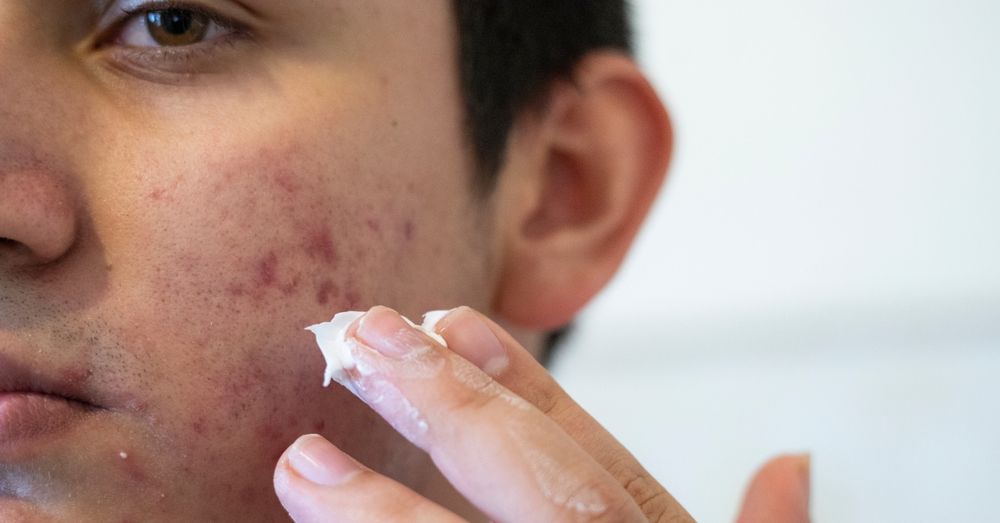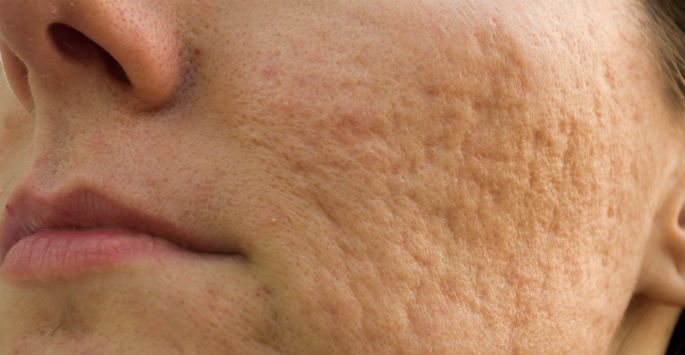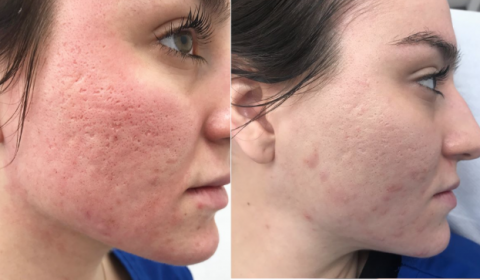Comprehending the Different Skin Problem and Efficient Treatment Choices for Acne Marks
Acne marks represent a complex interaction of skin problem that significantly influence people' self-confidence and overall skin wellness. Recognizing the unique sorts of acne scars-- atrophic and hypertrophic-- alongside their underlying causes, is critical for determining effective treatment techniques. Various restorative alternatives exist, ranging from innovative skin-related treatments to natural solutions. The effectiveness of these therapies typically pivots on tailored analyses by certified professionals. As we discover the landscape of acne scar management, it comes to be noticeable that the trip towards clearer skin may include more than just topical options.
Kinds Of Acne Marks

In contrast, hypertrophic scars result from an overproduction of collagen throughout the healing procedure, resulting in elevated locations on the skin. These scars are commonly solid and can vary in color, occasionally showing up red or darker than the surrounding skin.
Understanding these types of acne scars is critical for developing a reliable treatment plan - acne and acne scars treatment. Choices might consist of chemical peels, laser treatment, microneedling, or facial fillers, customized to the particular scar kind. An extensive assessment with a skin specialist can aid figure out the most ideal intervention, taking into consideration the individual's skin type, mark seriousness, and total skin wellness
Reasons For Acne Scarring
Scarring happens as a result of the body's natural healing action to swelling and injury caused by acne sores. When acne types, it causes an inflammatory reaction, resulting in the launch of numerous cytokines and growth elements that promote recovery. However, this process can in some cases result in extreme tissue development or insufficient repair service, resulting in marks.
The key causes of acne scarring include the severity of the acne itself, period of the sores, and specific skin kinds. Extreme inflammatory acne, such as nodules and cysts, is more probable to lead to scarring due to much deeper tissue damages. Furthermore, improper handling of acne sores, such as squeezing or choosing, can intensify cells injury and inflammation, raising the chance of scarring.
Genetic predisposition also plays a considerable role; people with a family background of scarring go to a higher danger. Moreover, skin type and color can affect mark formation, as darker skin tones may experience post-inflammatory hyperpigmentation, while lighter skin may create atrophic scars.
Ultimately, comprehending these reasons is crucial in handling acne and alleviating the potential for scarring.

Therapy Choices for Scarring
Efficient treatment alternatives for acne scarring differ relying on the type and extent of the marks. Normally classified into atrophic, hypertrophic, and keloid scars, these conditions require tailored approaches for optimal results.
For atrophic scars, which are defined by a loss of cells, treatments such as chemical peels, microdermabrasion, and laser treatment are frequently employed. These approaches advertise skin revival and boost collagen production, consequently improving skin structure. Subcision, a minimally intrusive procedure, can likewise be effective by breaking up fibrous bands beneath the skin.
Keloid and hypertrophic scars can be a lot more challenging to deal with. Choices consist of corticosteroid injections to decrease swelling and flatten the scars. In many cases, cryotherapy or laser treatment might be advised to minimize their appearance.
Surgical choices are offered for serious scarring, where excision or skin grafting might be needed. It's necessary for individuals to speak with a skin specialist to assess their details scar type and talk about the most suitable treatment strategy. Combining numerous therapies commonly yields the very best outcomes, guaranteeing that each patient's distinct skin problem is addressed properly.
Home Remedies and All-natural Solutions
All-natural options and home solutions can provide an accessible strategy for individuals looking for to improve the appearance of acne scars (acne and acne scars treatment). Numerous active ingredients discovered in the home kitchen area have demonstrated possible advantages in boosting skin appearance and promoting recovery

One more effective choice is lemon juice, which acts as an all-natural exfoliant and can lighten hyperpigmentation. Nevertheless, it ought to be utilized cautiously, as it might trigger photosensitivity. Oat meal masks are also advantageous; their gentle exfoliation can aid eliminate dead skin cells while soothing irritation.
Crucial oils, such as tea tree oil and lavender oil, can better sustain mark recovery as a result of their antimicrobial properties. It is vital to perform a patch test before applying any type of solution to make certain there are no damaging reactions. These all-natural options can be a corresponding approach in the journey to reduce acne scars.
Avoiding Future Scarring
Embracing a proactive strategy to skin care can considerably reduce the danger of creating future acne scars. Normal cleansing, peeling, and hydration can assist keep skin health and wellness and avoid clogged pores.
Additionally, preventing the lure to pick or press acne lesions is vital, as this can bring about swelling and succeeding scarring. Rather, individuals must concentrate on using topical therapies that promote healing and decrease inflammation. Ingredients such as salicylic acid, benzoyl peroxide, and retinoids are recognized for their read more efficiency in taking care of acne and lessening marks.
Sunlight defense is another crucial element; exposure to UV rays can hinder and darken marks recovery. For that reason, making use of a broad-spectrum sun block daily can mitigate these effects - acne treatment for sensitive skin.
Finally, preserving a healthy diet plan abundant in antioxidants and remaining hydrated assistances skin regeneration. By executing these precautionary steps, people can dramatically lower their threat of future scarring and advertise overall skin health.
Verdict
In conclusion, an extensive understanding of acne scars, including both atrophic and hypertrophic kinds, is vital this for reliable therapy approaches. Assessment with a skin doctor stays necessary to create individualized approaches that consider individual skin kinds and scar severity, inevitably boosting the efficiency of scar monitoring techniques.
Acne marks stand for an intricate interaction of skin problems that considerably effect people' self-confidence and general skin health. The 2 primary classifications of acne scars are hypertrophic and atrophic marks. These scars are further classified right into 3 subtypes: ice choice marks, which are deep and narrow; boxcar scars, which are bigger and have distinct edges; and rolling marks, which produce a wave-like look due to uneven skin appearance.
A thorough assessment with a skin doctor can aid establish the most ideal treatment, taking into account the individual's skin kind, scar extent, and general skin health.
Assessment with a dermatologist remains crucial to design individualized methods that consider private skin types and scar extent, eventually improving the efficiency of scar management see here now methods.